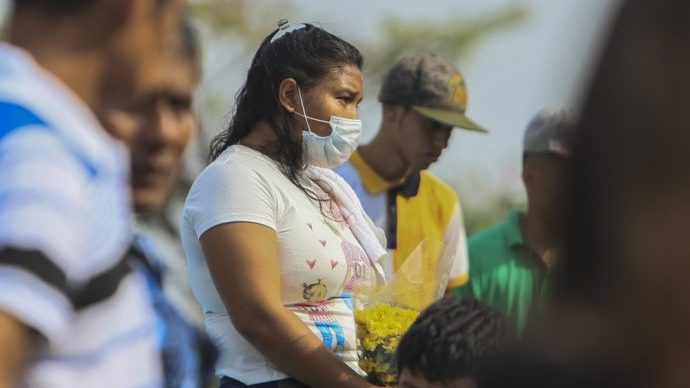As the government of Nicaraguan President Daniel Ortega and his wife, Vice President Rosario Murillo, is being accused of turning a blind eye to country’s COVID-19 pandemic, the Catholic Church is asking politicians to place the interests of the nation before their own.
“Today, we need men and women who seek the common good who, freed from all selfishness, feel the pain of the people and accompany them,” says a message released on Tuesday by the Justice and Peace Commission of the Archdiocese of Managua, the country’s capital.
Every day, they write, “dozens of coffins are seen in our cities, given a ‘express’ burial in the middle of the night; the sirens of the ambulances break the silence at all times; and [people] experience the pain of not being able to pay our tributes to loved ones who have left us without saying goodbye.”
Ortega and Murillo have drawn strong criticism for their handling of the emergency. During the first months of the outbreak, they were actually urging people to go out in the streets, claiming that Nicaraguans are stronger than the virus, or that God would spare the country. The government refused to set any restrictions, and schools were never suspended.
However, Catholic bishops urged people to stay indoors from the beginning, and last month, all the medical associations in the country signed a joined statement urging people to stay home to avoid further spread of the virus. Over 700 medical doctors signed the petition.
The government claims 74 deaths have occurred thus far of coronavirus, but the independent Citizen COVID-19 Observatory, that is comprised of a network of doctors and volunteers throughout Nicaragua, said last weekend that they’ve counted 1,398 deaths from the virus. They suspect the number of suspected cases is over 5,000 people, but with no way of testing patients, it’s virtually impossible to know how many of the country’s 6.4 million inhabitants have the virus.
The management of the pandemic in Nicaragua has raised concern among international bodies including the World Health Organization, the Pan American Health Organization, the Organization of American States, Office of the United Nations High Commissioner for Human Rights and the Inter-American Commission on Human Rights.
Managua heads the death toll with 614 cases, and the lack of protective gear puts the number of suspected health workers who’ve died of coronavirus in almost 70.
Already back in May hospital staff were reporting a health system overwhelmed by patients with respiratory illnesses, and family members who had loved ones die with COVID-19 related symptoms denounced that they were carted off in pick-up trucks for “express burials” without their consent.
“Mourners are forced to chase trucks with the coffin to find out where their loved ones are being buried,” the opposition National Coalition said in a statement denouncing government secrecy in May. Relatives “are threatened by police or paramilitaries so that they do not tell the truth about the causes of death.”
Hence the statement from Managua’s Justice and Peace commission released on Tuesday, after 15 doctors were fired for asking authorities to provide them with protective gear.
According to the Church, doctors and other health workers “expose themselves every day, without being adequately equipped with the necessary protective gear, in their fight against this fatal pandemic, to the point of dying for serving their brothers.”
“In all parts of the world they are applauded for their sacrifice and dedication, while in our country, sadly, for the fact of informing the truth and requesting the necessary protection, they are dismissed and deprived of their rights,” said the Justice and Peace Commission.

